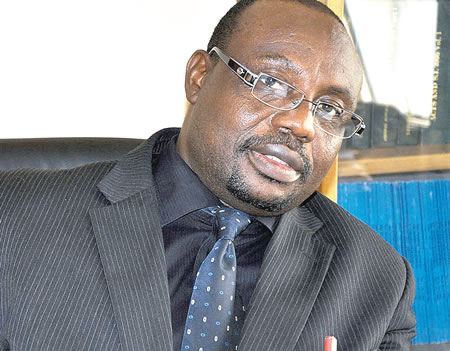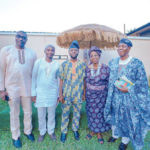At 57, it is yet another opportunity to count the blessings of the country. As a stakeholder in the Nigerian project, what do you see as Nigeria’s achievements and failures so far?
Nigeria has made tremendous progress in the last 57years. The country has grown in terms of infrastructure and human capital. Nigeria of 2017 is not the Nigeria of 1960 and certainly not the Nigeria of 1970. The number of universities in Nigeria has grown tremendously. There are so many Nigerian professionals serving in different parts of the world. Nigeria has been a leader in the West African sub-region and on the African continent and the world relies on Nigeria as a stabilising influence in West Africa.
Unfortunately, the growth and development of Nigeria is not commensurate with the resources available to us and the ingenuity of the people. The political elite in Nigeria have refused to see beyond their narrow selfish and individualistic preferences and pretentions and build a united nation anchored on the welfare and security of the people. While their counterparts in other parts of the world are creative and innovative and engaged in global competitiveness to advance science and technology for development, their Nigerian counterparts are stoking the embers of religion and ethnicity and dividing the Nigerian people. This stoking of the fault lines of ethnicity and religion led to a civil war and has always kept the country on its edge.
The political elite have been frittering the resources of Nigeria on frivolities and investing same in the economies of other countries. The political elite have held the country hostage and have refused to allow it advance even in the area of electoral competitiveness. They have more or less succeeded in “normalising” electoral fraud in Nigeria. The truth is that Nigeria could have advanced tremendously in all areas of human endeavour if we had a more patriotic and nationalist political elite driven by passion for the country and the poor and vulnerable in the society.
Could we have done better?
I believe that we have the power, the character and the resources to place Nigeria on the global map as an economic and social superpower. We are endowed with resources and a population with high resilient capacity. Unfortunately, we have rapacious political elite that are bereft of patriotic ideas and nationalistic instincts. Nigeria does not have a creative, innovative and forward looking political elite ready to take risks on behalf of the Nigerian people. We have the capacity to change our fortunes and we have the resources to do it. If 50 per cent of Nigeria’s earnings and resources is invested in Nigeria and used to improve the lot of the people, Nigeria will be a global superpower. Unfortunately, the political elite take out over 90 per cent of the resources and place the rest in recurrent expenditure. That is why we have decayed infrastructure and stunted growth. The critical stakeholders in Nigeria must begin the arduous process of building independent, accountable and strong institutions that are not wrapped around individuals. Civil society groups and organisations must map out a comprehensive and sustainable process of holding public office holders accountable in and out of office.
Is Nigeria more united today after fighting a civil war?
The political elite did not learn the appropriate lessons from the Nigerian civil war. The political elite is still playing and stoking the embers of ethnicity and religion. It is the irresponsibility of the political elite that accounts for the sharp divisions in the country today leading to all sorts and manner of agitation, insurgency and militancy. So, Nigeria is more divided today and it is very unfortunate. It is also unfortunate that the political elite are manipulating the ordinary people of Nigeria while they are united in their businesses and plundering of the country.
What do the current ethnic agitations and forms of crises portend for the country?
Other countries are fighting to improve the lot of their people and we are fighting the war of ethnicity and religion. Ethnicity and religion do not put food on the table. Ethnicity and religion are emotional and emotive issues with serious consequences for national security, integration and cohesion. The agitations show us as very unserious. Some of the agitations are empty and with no ideological direction. Unfortunately, some of the elite condone the agitations wanting to reap political capital from them. The flipside of the current agitations is that during periods of generalised lawlessness, nobody is safe and nobody can predict those that may be consumed. Moreover, no country can make progress in the face of social unrest and instability. No serious company or multinational company or country will be committed to invest when the investment can go up in flames. We must retrace our steps and see our diversity as a source of strength. We must see the humanity in every Nigerian and make religion as a purely individual affair.
To what degree would you say both the political and economic elite are genuinely committed to the Nigerian project?
The political elite in Nigeria, who unfortunately are driving its economic policies, are bereft of modern ideas and patriotism. They have refused to protect the country and its citizens. They have frittered away opportunities of making the country great. Nigeria needs a new political and economic direction and new political and economic elite to drive the process of change and renewal. It is, therefore, the responsibility of all individuals and groups in Nigeria to begin the process of dismantling the stranglehold of this group and begin to build a new Nigeria of hope and progress.





